Dealing with alcohol at work: Raise a toast to sober workers
21 sept 2021
4 min
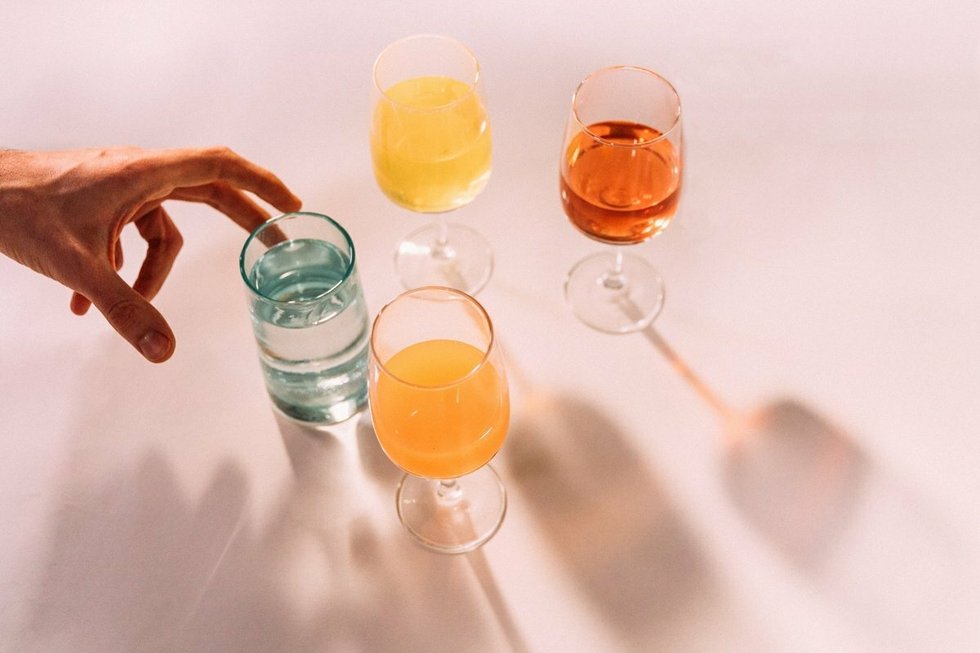

Journalist
Working remotely has given many of us the opportunity to make our own rules about what our lives look like. Workplace culture has been replaced with work-from-home culture, which offers the opportunity to have more control over our daily routines, as well as how we want to work and to live. Some studies indicate that during the pandemic most adults in the United States drank more alcohol than usual. For others, however, time away from their normal social setting provided an opportunity to start drinking less or to give up altogether. Now many of us are returning to the office and to work social events that might involve alcohol. So how can those who have quit or cut down on drinking fit back into a work culture based around alcohol? We hear from five people dealing with workplace drinking culture who no longer drink as much as previously.
One colleague offered me money to drink
“My colleagues have been understanding for the most part. Some claim to not appreciate my reasons for quitting or call it an act, but mostly they have respected my decision to stop drinking. But there are some colleagues who try to take advantage of after-work hangouts or social events that we attend together to try to get me to drink. They offer to buy me the liquor or pressure me by saying I won’t be able to sustain my sobriety. A colleague once offered me money if I gave in and drank with them.
Now I avoid work socials involving alcohol whenever I can or leave at the first opportunity if I have to be there. At the ones I do attend, I remind myself why I quit drinking whenever I’m tempted or phone my sponsor for motivation and guidance.”
Katherine Brown, marketing director, Spokane, WA
Not everyone wants to get back to the old normal
“We usually have a Friday social night now that workers are getting back into the office. I still participate in the event but I have cut down my social drinking limit since the pandemic began. So far, I haven’t drunk more than my limit, which is a glass or two of wine. Most of my colleagues are also still wary of social gatherings so [they] either won’t really drink or [won’t] keep their masks off for too long. Not everyone is keen to get fully back into the old normal yet.
I usually drink slowly and focus on the food. Sometimes I order more food to get conversations going without the pressure of drinking more. If I have to, I divert my colleagues’ attention to something else if they try to insist that I drink, and I’m firm with my answer every time. It’s not hard to say no though. My colleagues are in the same position, so we don’t really have any pressure regarding drinking.”
Michael Knight, business founder, Newport Beach, CA
I often pretend to drink by asking the bartender for virgin cocktails
“I quit drinking about three months ago for the health benefits, but networking is a big part of my job and alcohol is usually involved. I find myself in many situations where I pretend to drink, usually by asking the bartender to dress up my tonic to look like a mojito, or just holding a glass of ice all night and making the excuse that I’ve had enough already.
I don’t feel comfortable sharing my non-drinking at professional events, even for health reasons. There is definitely pressure to conform socially and professionally. I’ve told my office that I’ve stopped drinking to lose weight. That takes some pressure off because almost all of my colleagues there have tried one diet or another over the years.”
Alejandro Uriarte, attorney, Miami, FL
I stopped drinking but my colleagues started to drink more
Before the pandemic me and my colleagues always went out as a group every other Friday for drinks, and I always needed someone to drive me home. Then I decided to cut alcohol from my diet after testing positive for Covid-19.
Since we went back to the office full-time, it has been a lot more difficult than I expected. I get vibes that I am weird for having stopped drinking at a time when a lot of my colleagues became heavier drinkers. They are understanding of my choice, but that does not stop them from giving me a hard time, and they have pressured me into taking shots here and there. But in no way am I the same tier of drinker as I was before. Now my best coping strategy is volunteering to be the designated driver myself. It helps me maintain my social connection with my colleagues, but I can make sure they don’t force a drink on me.
Perry Knight, editor, Fort Lauderdale, FL
If I say I’m not drinking people immediately ask why
I completely cut out alcohol during remote working as I just decided it was no longer serving me. When I explain this, I think it causes people to turn and look at themselves and question whether or not they should be drinking as well. I’m not judging them, but they begin to judge themselves. Many colleagues, who knew me as a drinker in my pre-pandemic life, are not understanding. When you don’t drink at one or two social events because you “have to get up early” or “are driving” nobody questions it, but by the third or fourth time, you feel as though you have to explain yourself. It’s really sad that immediately people ask if I’m pregnant or if I had a drinking problem. I have never felt pressured to drink more than necessary, but I have felt pressure to drink. My coping strategies work, but I feel silly having to use them. I will often bring a bottle of alcohol-free white wine to the bar ahead of time, slip the bartender $20 and ask them to pour it for me when I order. If it’s a beer night, I will order ginger ale in a pint glass and sip away all night.
Carrie Foley, real estate broker, Naperville, IL
Photo: WTTJ
Follow Welcome to the Jungle on Facebook on LinkedIn and on Instagram and subscribe to our newsletter to get our latest articles every day!

Más inspiración: Physical health
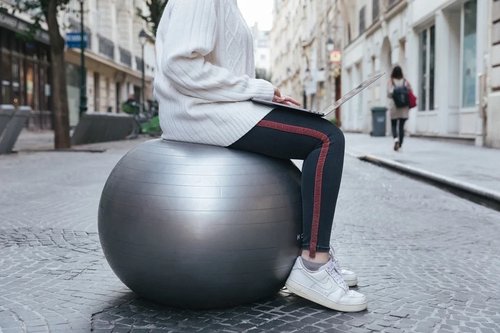
The best equipment to help you get exercise without leaving your desk
A sedentary lifestyle can lead to serious health problems. So, how can you stay fit while still at your desk?
09 nov 2023
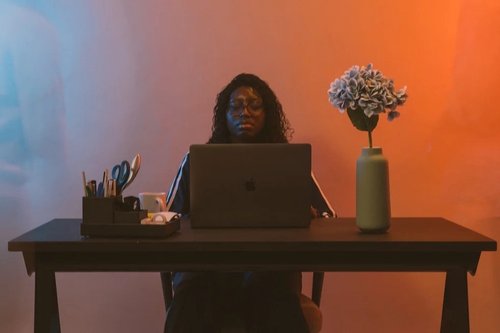
Glued to your desk all day? Try these discreet exercises
Laptop-based work can mean freedom and comfort, but a sedentary lifestyle also brings a host of health risks...
18 oct 2023
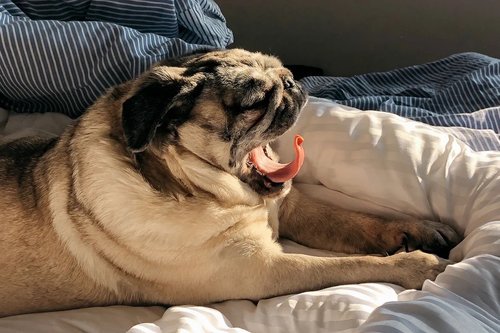
How the world of work is getting better for veterinarians
Though typically not considered a dangerous profession, veterinary services rank among the highest industries for non-fatal injuries
04 oct 2023
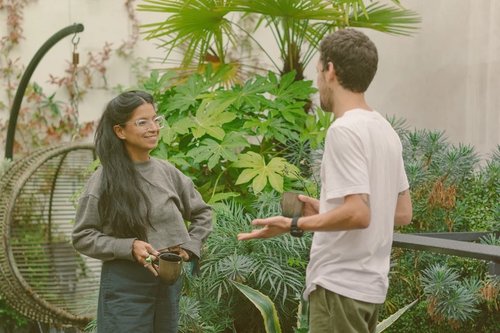
The dynamic benefits of walking meetings
As our jobs become more flexible, workers are finding new ways to improve their mental and physical health
03 oct 2023
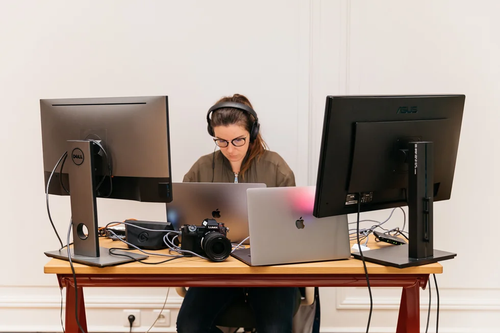
Digital eye strain: You are not alone
With the average American spending more hours in front of the screen than sleeping, computer vision syndrome has become a folk illness.
04 oct 2022

¿Estás buscando tu próxima oportunidad laboral?
Más de 200.000 candidatos han encontrado trabajo en Welcome to the Jungle
Explorar ofertas